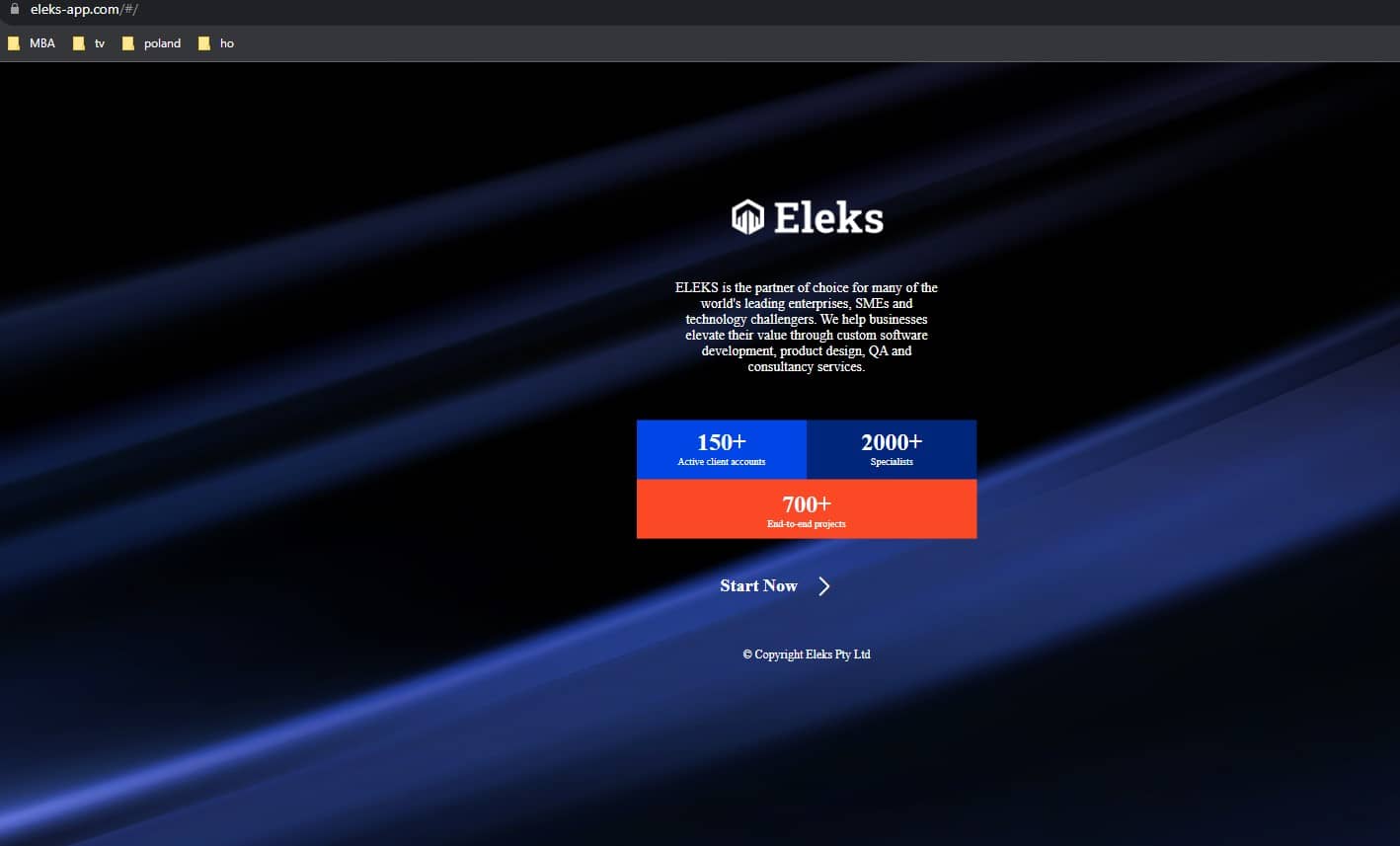Many people today seek well-paying jobs that provide flexible working hours and the freedom to work remotely from anywhere in the world. While these jobs are undoubtedly appealing, it's important to be mindful that the risk of encountering fraudulent job scams remains as significant as ever.
A recent example of a fraudulent scheme involves the counterfeit job offer from a platform known as "Eleks" (eleks-app.com). The scammers used the name of the legitimate software development company, ELEKS. They incorporated some visual elements of the company's website (eleks.com) in an attempt to deceive unsuspecting job seekers into paying money with the promise of securing employment with the ELEKS company. Please note that the website address and visual appearance can vary, even though the same fraudulent scheme is consistently applied each time.
Here are screenshots of the counterfeit website "eleks-app.com" for your reference.


In today's highly competitive job market, the promise of a well-paying position and the convenience of remote work can be highly tempting. Scammers are acutely aware of this and exploit job seekers' ambitions by promoting the counterfeit job title of "app reviewer."
The scammers behind Eleks app use diverse tactics to mislead jobseekers and draw them into their scheme. They used fake recruiter accounts to contact people via messaging platforms or social media. And while there are legitimate app reviewer jobs in the market, you should still be very cautious and conduct thorough research before accepting such offers.
Here are some typical features of fraudulent job schemes that job seekers should be aware of:
- Fake company names: You should be highly cautious of companies with names that closely resemble other brands or well-known organizations, as seen in the case of the “Eleks-app”. Such similarities can often be a red flag for potential fraudulent schemes that scammers use to deceive job seekers.
- Lack of online presence: Always verify the company's online presence, which should include a functional website and social media profiles with a substantial following, visible engagement and an active posting history. Scammers often lack a credible online presence.
- No proper physical address: Legitimate businesses usually have a physical address, while scammers might lack any valid address information.
- Unusually good job offering: Fake jobs often promise high salaries, limited work hours, and multiple benefits that seem too good to be true.
- Vague job descriptions: Fake job listings often include vague or generic job descriptions with misleading titles lacking details about requirements and responsibilities.
- Upfront payments: Scammers may request upfront deposit payments for various reasons, from application processing fees to the costs of training materials. Legitimate employers never require candidates to pay any of these.
- Unprofessional communication: Scammers may be using unprofessional email addresses, sending generic messages and communicating poorly. Their emails often lack official corporate branding of legitimate companies.
By being aware of these scam features and conducting due diligence, you can reduce the risk of falling prey to fraudulent job schemes.
Always perform proper research. Look up the company, check their corporate website and social media accounts, and look for reviews on third-party websites and listings. If you can't find this data or the information seems suspicious, be cautious.
If a job posting is associated with a reputable brand, don't hesitate to reach out individually using the company's official contact information and verify if the mentioned job opportunity exists. Ask them to confirm the recruiter's affiliation with the company and the authenticity of the job posting. By following these guidelines, you can protect yourself from falling victim to fraudulent schemes.
